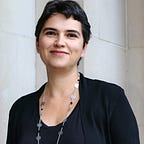 As we head into summer, many parents and teachers may wonder: how much of what students learned during the school year will be forgotten by September? Once, a dreadfully long time ago in high school, I asked myself the same question. Since I was an experimentally minded kid I decided to find out: I dug up my binder from a history class a semester before and retook an old test. The result dismayed me. On a test I had easily aced while in the class, I now earned a measly 52 percent.
As we head into summer, many parents and teachers may wonder: how much of what students learned during the school year will be forgotten by September? Once, a dreadfully long time ago in high school, I asked myself the same question. Since I was an experimentally minded kid I decided to find out: I dug up my binder from a history class a semester before and retook an old test. The result dismayed me. On a test I had easily aced while in the class, I now earned a measly 52 percent.
This little experiment has stayed with me as I’ve taught college biology. Many of my students want to become doctors, physical therapists and veterinarians, so long-term recall of what they have learned is critical for their future careers. But how much of what they’ve so painstakingly absorbed will they really remember years from now? One discouraging prediction comes from a study conducted in the Netherlands, where practicing doctors were given a test of foundational knowledge in anatomy, physiology, biochemistry and pathophysiology. For concepts that the doctors never reviewed again after medical school, they forgot about 56 percent of what they had learned in the first eight years after graduation, and 60 years later, retained less than 30 percent of their original knowledge.
Of course, memory retention is relevant not just for aspiring physicians, but to students of languages, history and many other subjects. For example, a study conducted at MIT a few years ago found that by their senior year of college, students lost about 55 percent of what they had learned in a freshman physics course, unless they had continued to use and build on the specific concepts from the course.
Indeed, as teachers and parents alike know, even during a single semester or school grade, students don’t retain everything they’ve learned.
So what can we do to stack the odds in the students’ favor?
A wealth of recent neuroscience and psychology research shows that memory retention is best when studying includes so-called “retrieval practice” — mini-tests or quizzes challenging the student to recall the information during the learning process. This method is much more effective than simply re-studying the material over and over, and is most productive when the practice sessions are spaced out over days rather than massed together into a single session or a few long sessions. Given the overwhelming evidence in its favor, spaced retrieval practice should be a part of both classroom teaching and home study, and should be incorporated into the curriculum at all levels, from the planning of homework assignments to the adoption of one class schedule (such as more classes instead of fewer) over another.
Retrieval practice gained widespread attention from learning researchers with an influential paper published in the journal Science in 2008. In it, authors Jeffrey Karpicke and Henry Roediger reported the results of an experiment with students learning foreign language vocabulary. During the learning phase, the students completed multiple cycles of studying and being quizzed on the new words, and then took a final test a week later to see how much they still remembered. The students were subdivided into four groups: Group 1 always studied and took quizzes on all the words throughout the learning phase, but for the other three groups, once a student got a word right on a quiz, it was dropped from the remaining cycles of studying (Group 2), from the remaining quizzes (Group 3), or from both (Group 4) until the final test. The surprising result? Groups 1 and 2 did equally well and far outperformed the others on the final test. Repeated testing, not repeated studying, was the deciding factor.
A number of studies have since extended and refined the conclusions of that original paper.
It turns out that retrieval practice yields the best results when it is distributed over multiple days, weeks and even months.
For example, students learning skeletal muscle anatomy demonstrated better recall if their practice sessions took place on three days over a one-week period, compared to students whose practice sessions were lumped into one day, despite their total practice time being the same. What’s more, the exact spacing of the practice sessions makes a difference — for instance, delaying the first practice test after studying promotes better long-term recall, and the longer one wants to remember something, the longer the gaps should be between re-tests. Importantly, the benefits of spaced quizzes are long-lasting: for example, students who used this method in a pre-calculus course not only performed better on the final exam than students whose practice quizzes were all lumped into one or a few long sessions, but did better in the calculus course the following semester, too.
Controlled experiments show that retrieval practice beats out concept mapping (a study strategy in which students create a visual representation of related ideas, somewhat like a flowchart) for memory retention. Curiously, when students use retrieval practice to learn items, and are then told to forget them before an upcoming test, they actually can’t — unlike students who use re-studying and can successfully forget the information. Furthermore, retrieval practice doesn’t just improve rote memory — it also enhances transfer of learned concepts to new situations and boosts further learning.
By now I hope I have convinced you that spaced retrieval practice should be included in school instruction as well as home study. But how? Fortunately, online learning tools like Quizlet and Memrise take the guesswork out of spacing and make studying more fun by incorporating video game elements like points, badges, “leader boards” and animated activities. Both programs are free and allow students (or instructors) to create their own sets of study materials or to use those already in the database. By awarding bonus points or instituting small prizes for users, teachers can encourage students to work with these programs on their own time.
Additionally, many educators are beginning to include more retrieval practice in classroom instruction, for example, by conducting brief anonymous quizzes at various points during a class using “clickers.” For the best results, such pop quizzes should include previously learned information interleaved with the material students are currently studying. Giving grades at this stage is not important, but students do need to receive feedback on whether their answers were correct.
Lastly, educators should consider spaced repetition in their curriculum planning and school calendars. For example, a “spiral” curriculum, in which students periodically revisit the same material at increasing levels of difficulty, naturally incorporates spaced review. It’s also better for students to attend a math class three times a week throughout the entire academic year than to have one daily for one semester, and then no math at all the following semester.
So, students: this summer, dust off an old test and try it out. Your score may underwhelm you, as mine did so many years ago, but just by practicing retrieval and checking your answers, you will be giving your long-term memory retention a sizable boost.
